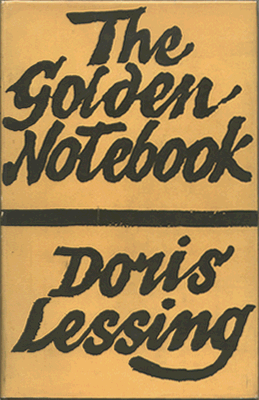Some ten years ago Bill Drummond – a pretentious stain who's successfully post-moderned himself into almost total obscurity – did something utterly unforgivable. He took his midlife crisis and attempted to turn it into an art movement.
Upon realising that he didn't like music as much as he used to, he transformed what was most likely a dopamine release failure into a much wider “problem” with music itself and attempted to instigate an international day of “no music”.
He wrote:
“All recorded music has run its course.
It has all been consumed, traded, downloaded,
understood, heard before, sampled, learned,
revived, judged and found wanting.
Dispense with all previous forms of music and
music-making and start again.
Year zero now.”
And, with all due respect, the moment I read that I immediately lost all respect I could ever have harboured for Mr. Drummond. What a tedious embarrassment of a piss-artist.
Anyway, Mr. Drummond just turned 60, and he spent 17 hours of his sixtieth birthday stood on a manhole cover at the bottom of Liverpool's Matthew Street (because he's Bill Drummond). It turns out that he's been training a choir, and he didn't want to unleash it upon the world before turning 60 (because he's Bill Drummond).
In his words:
“People who have ever had any success within popular music (which I guess includes me) should never think their success gives them the right to do other art forms. The history of pop being littered with examples of highly regarded musicians who then go and embarrass themselves and compromise their achievements by attempting to mount exhibitions, publish novels, compose concertos, or even save the world.
"I did not want to be one of those.”
If his ethics make doing anything such an immense problem, surely he'd be much happier not doing anything at all? I for one would applaud his quiet retirement, so long as it was as quiet as it could possibly be. Silent, even.
But this is interesting. To quote Carrie Bradshaw, I got to thinking...
Specifically, I got to thinking about the subsequent careers of those “who have ever had any success with popular music”. It's fascinating, isn't it? If you've spent a significant portion of your young life playing chords, singing songs and giving interviews, what then?
I'm always keen to find out.
I once read that an ex Boo Radley now teaches IT, and that someone from The Thrills is now quite a whiz at LinkedIn.
And whilst those two fates are, in themselves, quite interesting, I have a couple of case studies which I find to be almost inspirational. As in, despite what Bill Drummond insists, creative minds need not be consigned to a single medium. Everyone's got a “right” to do whatever they want with their lives – not just “other art forms”, Bill.
For starters (and, you'll soon see, that that was a very clever pun), let's look at Sam Herlihy.
Sam used to sing and play in The Hope of the States. Now he writes about food. Sam Herlihy is a food writer. I don't read many food writers, but I don't think I've ever read better.
Sam Herlihy can write. His lyrics for The Hope Of The States could tend to be a bit overwrought, but Jesus Christ, his food writing's incredible. It's tangled, rambling, caustic and utterly delicious. It's like haggis served atop a bed of green spaghetti washed down by cheap wine that tastes expensive.
Some choice excerpts:
“Quorn is to food what Japanese-porn is to porn; weird, the best bits blocked out, really grim and miserable.”
“I have been forced to change my cooking style. Out with my usual spicy Asian Szechuan hipster fatty nonsense and in with plainer food. More simple food? No, I can still render our kitchen as downtown Nagasaki if a fridge had exploded instead of an atom bomb. Quicker food? Nope, I can still take four hours over the cooking. Nicer food? Nah, it’s not my world this butter and potato and rosemary planet. My food is trying to be ‘Bladerunner’ and Raiden from ‘Mortal Kombat’ and this stuff is all period drama Keira Knightly and Mr Darcy britches or something.”
Not only do I want to eat that man's food, I want to listen to him – all night – talk about whatever he wants to talk about. Having read just one of his articles, Sam Herlihy instantly leapt to the top of my fantasy dinner party guestlist. He's not only the guest of honour, though. He's now also the chef.
What makes his writing so compelling is its very groundlessness. His tangents, his anecdotes, his crazy ideas and the impression you get – probably accurate – that he's writing this in one sitting and has something of a cavalier attitude towards editing.
He's apparently burning up with bitterness and resentment (he doesn't have a lot of nice things to say about Morrissey, for example), but never is his writing more engrossing than when he hates on himself. This one, where he talks about finding his first ever restaurant review, is priceless.
But it's never more fascinating than when he veers wildly from the topic of food to talk about what must be his deepest passion – music. This one, on the discrepancy between skill and technique, is truly one of the finest, most compelling pieces of music writing I've ever read.
So that's Sam Herlihy. The Hope Of The States were brilliant, but I do believe that in food writing he may have found his true calling. Take that, Bill.
And then comes Crispian Mills. It may not be wholly accurate to talk about his latest endeavours as a “post” musical career, as Kula Shaker still seem to be an ongoing concern, having released an album as recently as 2010. But again, as much as I enjoy Kula Shaker, I do believe that Crispian Mills was always supposed to be a writer/director.
His debut film is A Fantastic Fear of Everything. It didn't appear to make much of an impact upon release, but having just watched it, I believe it to have all the trappings of a future cult-classic.
It's a strange film set in a strange world. Like the films of Wes Anderson, it's not exactly a period piece, but nothing's new. This is a terrifyingly oppressive world in which bookshelves turn into skulls, launderettes are the scariest places imaginable and you're still allowed to smoke in restaurants. Everybody's dressed like it's the 70s and they listen to gangsta rap on cassette.
Simon Pegg plays Jack, an accidental children's author with a carving knife glued to his hand. He's driven himself to the point of insanity through researching Victorian serial killers, and his life becomes unbearable when he learns that he'll have to visit a launderette.
Jack is like a cross between Withnail and I, and it therefore comes as no surprise that the film's based on a Bruce Robinson short story. But what's truly remarkable was the look and feel of the film. Crispian Mills, responsible for such lyrics as “you're a wizard in a blizzard”, directs like Edgar Wright and Michel Gondry collaborating on an episode of Psychoville. It's unhinged, hysterically stylised and absolutely beautiful to look at. Best of all, though, are the periodic forays into stop motion animation by co-director Chris Hopewell (who was responsible for Radiohead's There There video).
A Fantastic Fear of Everything is one of those films that's “not for everyone” (but what film is?), but it left an indelible mark on me. I won't stop thinking about this film for some time. It's imperfectly structured and, at times, somewhat clumsy in its execution, but credit where it's due - this is a directorial debut. I'm just...stunned that the man who wrote Govinda should go on to create a film that pays tribute to both Michael Mann and The Hedgehog in the Fog. Incredible.
Bill Drummond wouldn't like A Fantastic Fear of Everything, and he'd probably find Sam Herlihy's writing a little tough to swallow. But then, Bill Drummond doesn't actually like anything (because he's Bill Drummond).
Personally, I find it quite wonderful that these two musicians (who were, in the grand scheme of things, “also rans”) should have avoided disappearing completely. That their subsequent work is, in some ways, a lot more appealing than their music perhaps ever was should be a real “egg on the face” moment for old Bill.
I hope for similar changes in direction for all of the stars of Britpop and its immediate aftermath. Maybe Shed Seven could open a holiday camp!






